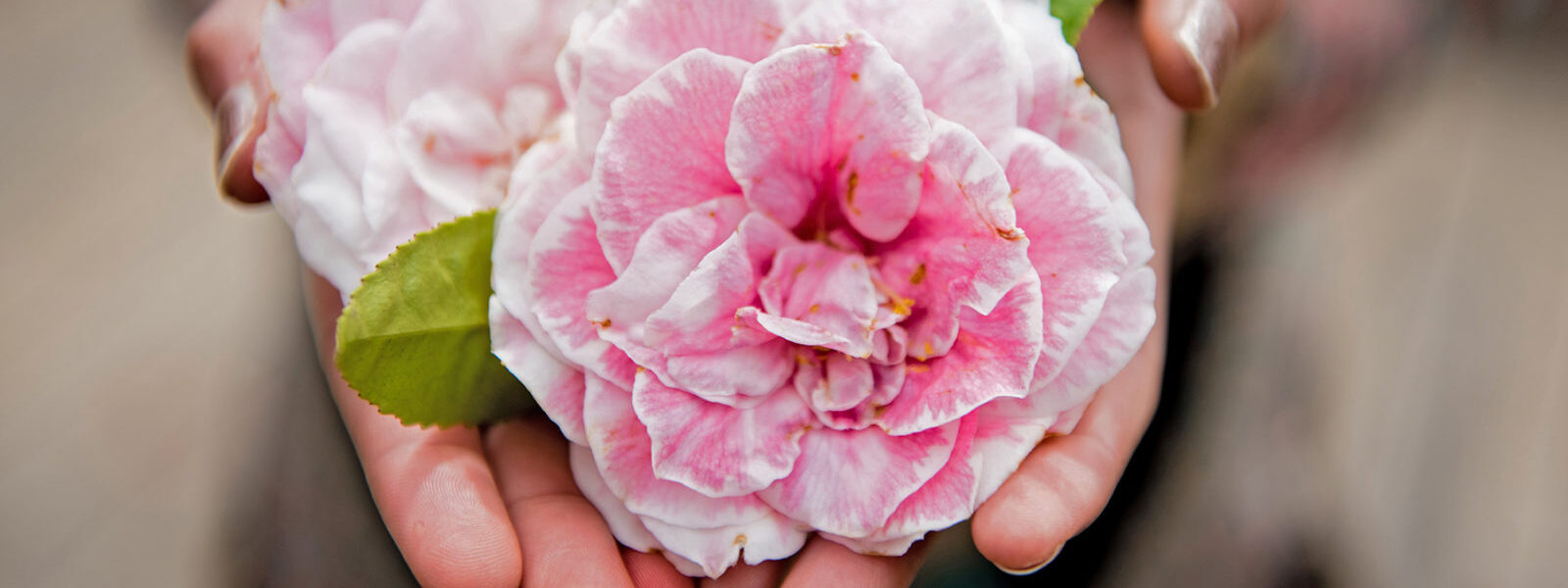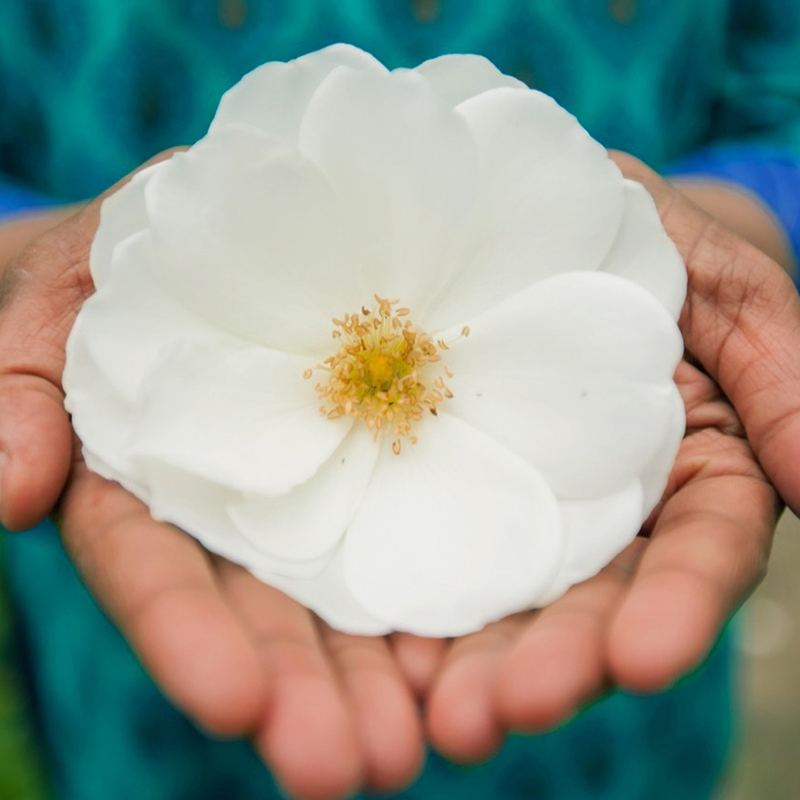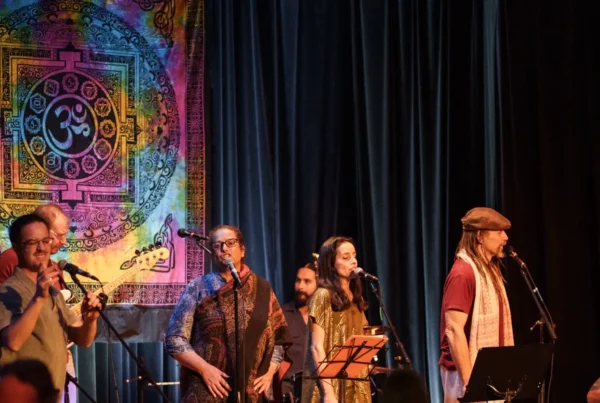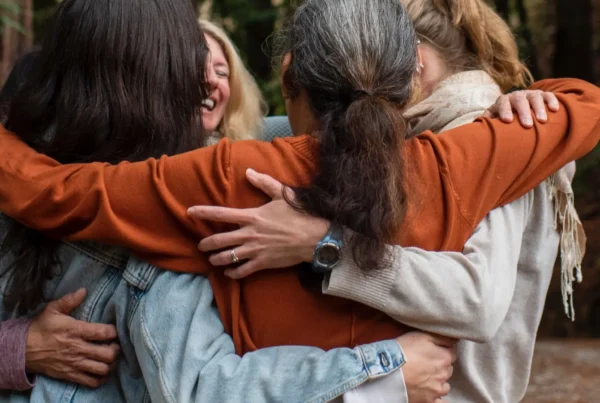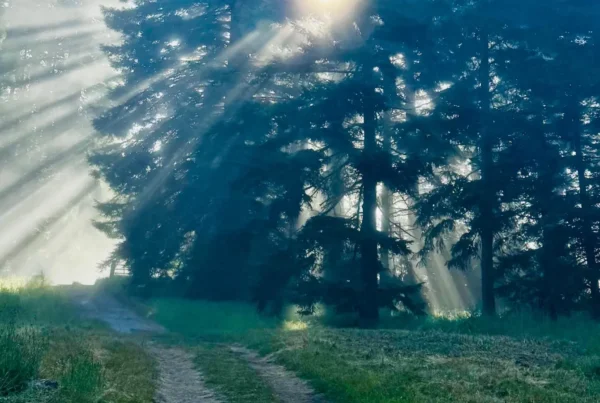During this season that we traditionally dedicate to love, let us walk down a tried-and-true pathway to the heart: the embodiment of gratitude. Gratitude enlivens the spiritual heart and provides the sustenance needed to live a life of virtue and meaning, a life path which is not necessarily the easy road.
David Stendl-Rast, a beloved monk who has written numerous interfaith books on the topic, speaks of it this way: “Gratefulness is the inner gesture of giving meaning to our life by receiving life as a gift.”
Gratitude is an approach, a pathway, a way of being in the world that the heart already knows on a deep level. Luckily, it can also be learned and taught. In her book, “Living in Gratitude”, Angeles Arrien writes:
“Gratitude is the way the heart remembers – remembers kindness, cherished interactions with others, compassionate actions of strangers, surprise gifts, and everyday blessings. By remembering, we honor and acknowledge the many ways in which who and what we are has been shaped by others, both living and dead.”
There are moments in which it is difficult to say: “Thank you, this is exactly the kind of catastrophe I was looking for!” or “Thank you, the unexpected death of my loved one will be a great life lesson I’m sure.” or “How wonderful that I got COVID and can’t attend the retreat in person.” You get the idea… In moments like these, when it is hard to connect with greater meaning or the inspiration to go on, with eyes and heart open, in these moments, it’s helpful to know that gratitude is not a perfection, but a practice that we can rely on.
Opening ourselves to the pain of our experience while remaining committed to our faith can be tough, but we can start small and grow the gratitude “muscle” with time and practice. Those familiar with loving-kindness meditation know the power of gently expanding the circle of objects and people for which we feel love and gratitude. We can do that practice on our meditation cushion, and we can also do it in our daily life, with our own experiences. There’s sometimes an idea that to be grateful is a passive way of being, when, in fact, it can be quite edgy and active! It’s like the original shadow work, in which we choose not to exclude people, events, or parts of ourselves from our own acknowledgement and awareness. We needn’t abandon reality and slip into toxic positivity, we can simply, as Angeles Arrien encouraged, remember and honor all the parts of our lives that make us who we are. If we’re not ready to fully embrace, we can begin with simple acknowledgement.
Henry Miller once said:
“Life has no other discipline to impose, if we would but realize it, than to accept life unquestioningly. Everything we shut our eyes to, everything we run away from, everything we deny, denigrate, or despise, serves to defeat us in the end. What seems nasty, painful, evil, can become a source of beauty, joy, and strength, if faced with an open mind. Every moment is a golden one for him who has the vision to recognize it as such.”
Those golden moments make the heart shine and sparkle.
And the practice of gratitude can also be a cooperative one! Dr. Andrew Huberman, who directs the Huberman Lab at Stanford’s School of Medicine, and hosts a podcast of the same name, has a fascinating episode about gratitude practices. Making lists of things we’re grateful for is a rewarding practice, but he explains that an even stronger effect on our brain functioning can be gained through receiving gratitude, or seeing gratitude being received. When we receive genuine gratitude, the part of our brain involved in complex cognition, personality, decision making, and social behavior is enhanced. So, as Huberman says, just know that we as individuals have a powerful tool to affect and improve another person’s neurology by offering our reflective thanks to them.
Even more interestingly, he cites studies that show that the “ability to witness humans helping other humans” powerfully changed the brain. Just hearing a story about someone else receiving help from another, or imagining deeply into the emotional experience of someone receiving help has the same benefit of directly receiving it ourselves. Take note of the feelings and thoughts in your body and mind the next time you hear an inspiring story like this, and know that you are being changed at a deep level.
This shows us how we connect to others’ stories through our own hearts. It’s like we have a secret passageway from our selves into the experience of another – a little door opens on this side, and another one opens on their side. We find unity through the human condition, through this universal heart.
This research also affirms what the yoga scriptures point to as a method for spiritual development, which is to read the stories of saints. These stories provide inspiration, hope, specific approaches, and they open our hearts to the life-giving resource of gratitude. Witnessing the life of a realized being is hugely impactful, partly because we get the opportunity to witness all the people that being is supporting. In our Mount Madonna community, those who spent time with Baba Hari Dass, or are familiar with his works, found to be a working, playing, breathing example of what is possible as a human. He was a living narrative inspiring gratitude. And so are the teachers and friends and kind strangers we encounter everyday.
We can practice gratitude for ourselves, for others, and even by simply witnessing it in others. Like the blood pumping in and out of our physical hearts, it is a reciprocity, a strengthening and opening exercise and a resource. It is also a metaphysical experience, a secret passageway to unity through the universal heart of gold.

